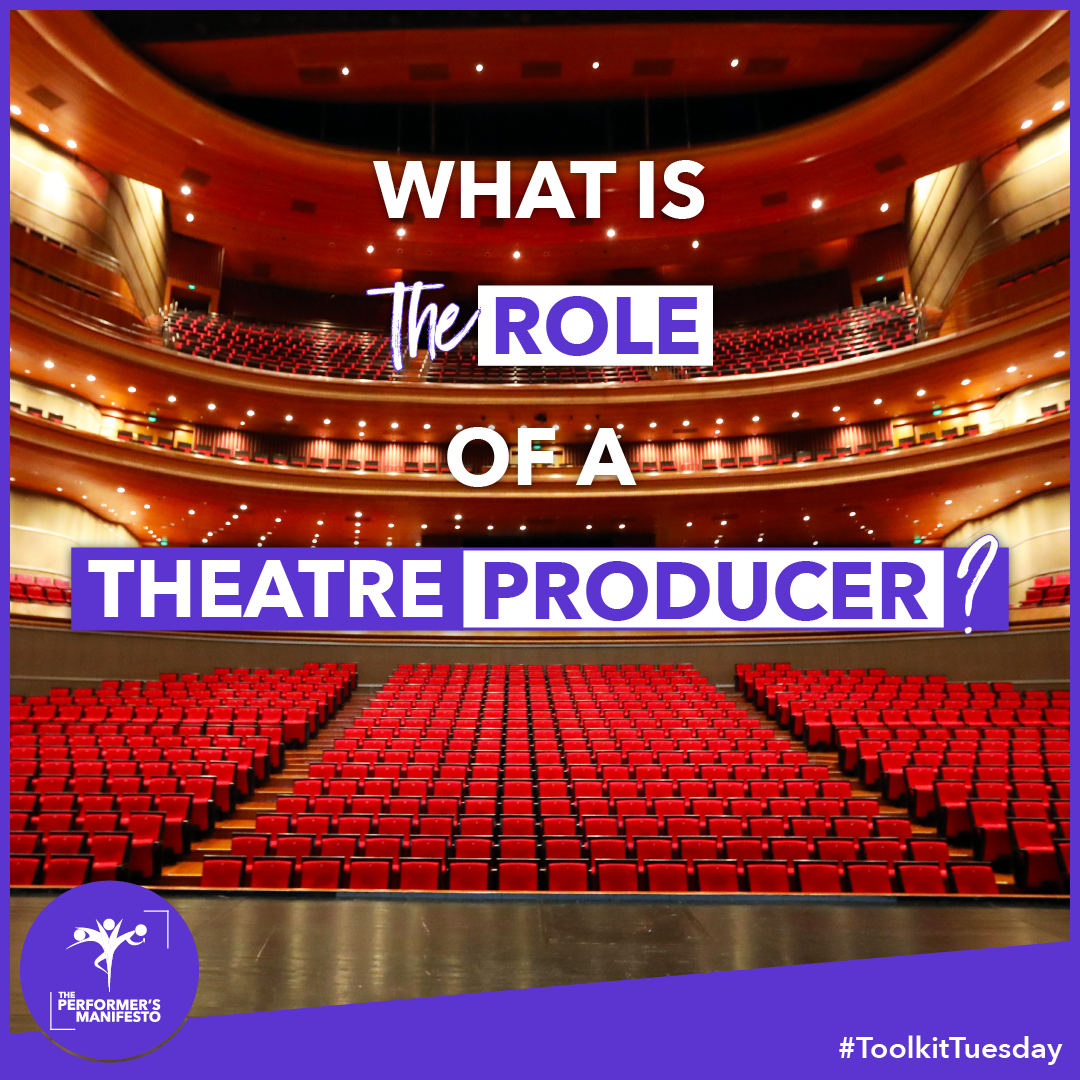Welcome to #ToolkitTuesday, where we provide performers with valuable tools and insights to enhance their craft and career. This week, we’re diving into the role of a Theatre Producer, a pivotal figure in the world of theatre. Understanding the various roles that make our industry function can only serve to make you a better professional… and what better place to start than at the top?
The Theatre Producer: The CEO of a Show
In the theatre world, a producer is essentially the CEO (Chief Executive Officer) of a show. They oversee all aspects of production to deliver the best possible performance, on time and within budget. The role can be challenging to define as no two producers are exactly alike, but one thing is certain: no show on Broadway or anywhere else happens without producers.
Bridging Artistic and Business Aspects
Producers are the crucial link between the artistic and business facets of a production. They ensure that the creative vision of the show can be realized by handling the logistical and financial details. Producers are the ones who say ‘yes’ to the concept of a show, commission ideas from theatre-makers, gather financial support, and bring together the artistic and creative teams to get the show off the ground.
Key Responsibilities of a Theatre Producer
Here’s a closer look at the typical responsibilities a producer may handle:
- Hiring and Uniting the Creative Team: A producer assembles the team that will bring the show to life, including directors, designers, and performers. They ensure that everyone is working towards the same vision.
- Creating and Following the Budget: Producers create a budget that covers all aspects of the production. They are responsible for ensuring that the show stays within financial constraints.
- Raising Financial Investment: Securing funds is a significant part of a producer’s role. This can involve finding investors, securing grants, or other fundraising activities.
- Sourcing and Leasing Theatres and Rehearsal Spaces: Producers find and negotiate contracts for the venues where the show will be rehearsed and performed.
- Setting Performance Schedules and Ticket Prices: They determine when the show will run and how much tickets will cost, balancing accessibility with financial sustainability.
- Overseeing Marketing and Publicity: Producers manage the promotion of the show, ensuring that it reaches a wide audience and generates interest.
- Creating Timelines for Rehearsal and Production: In collaboration with the director, they develop schedules to ensure that everything is prepared for opening night.
- Hiring and Overseeing Stage and House Managers: These roles are essential for the day-to-day running of the show, and the producer ensures they are well-managed.
- Problem Solving: A producer is an all-round problem solver, guiding the show through any challenges that arise during production.
The Essential Role of Producers
Without producers, the theatre world would struggle to turn creative visions into reality. They are the backbone of any production, ensuring that everything runs smoothly from the initial concept to the final curtain call. By bridging the gap between art and business, producers play a crucial role in the success of any theatrical production.
Understanding the role of a producer gives performers insight into the broader landscape of theatre production, fostering a greater appreciation for the complex and collaborative nature of bringing a show to life.
Stay tuned for more #ToolkitTuesday insights, and keep building your knowledge to thrive in your performing arts career!


